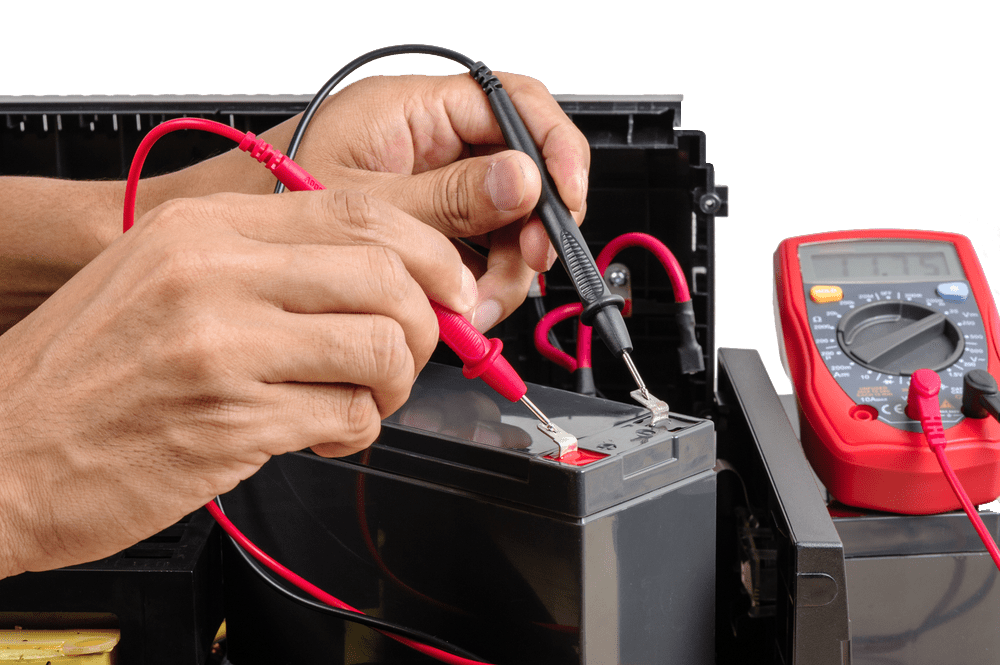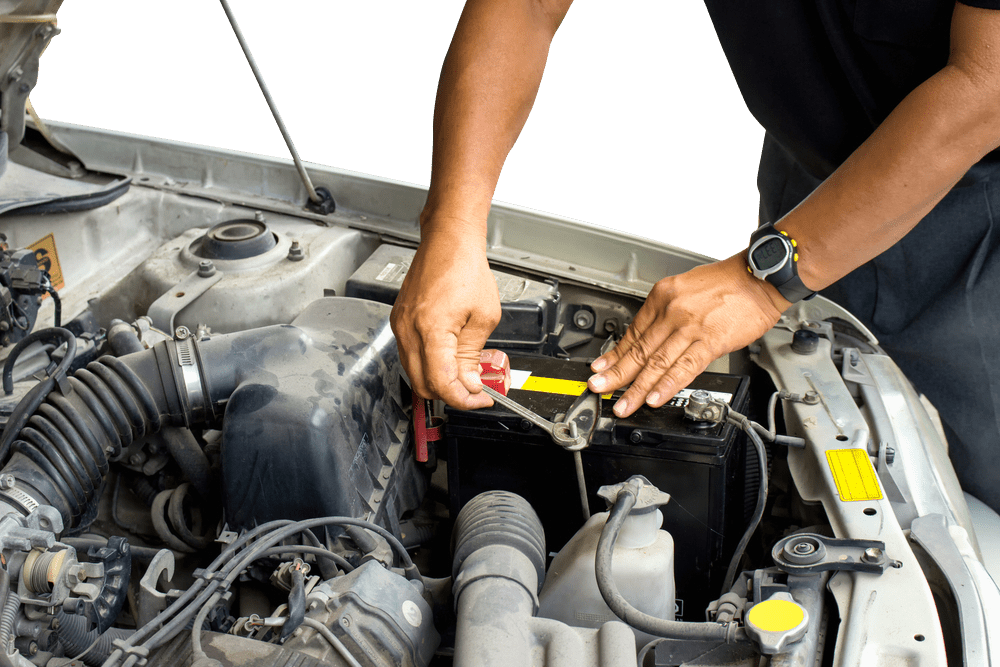- 8 Aug 2025
Maintenance of Tractor Battery

Proper maintenance of tractor battery systems is crucial for ensuring reliable operation of agricultural and industrial equipment. Whether you’re a farmer in the outskirts of Sydney or a construction contractor operating heavy machinery, understanding how to care for your tractor battery can save you time, money, and prevent unexpected downtime. This comprehensive guide explores the best practices for tractor battery care, troubleshooting common issues, and maximizing battery lifespan in various operating conditions.
Understanding Your Tractor Battery Basics
Before diving into maintenance procedures, it’s important to understand what makes tractor batteries different from other vehicle batteries. Tractors typically use heavy-duty lead-acid batteries designed to withstand vibration, provide high cranking power, and deliver consistent performance in demanding environments.
Types of Batteries Used in Modern Tractors
Different types of tractors require specific battery configurations:
- Conventional Lead-Acid Batteries – Traditional batteries that require regular fluid level checks
- Maintenance-Free Sealed Batteries – Popular in newer tractor models around Sydney and other regions
- AGM (Absorbed Glass Mat) Batteries – Premium options with better vibration resistance
- Deep Cycle Batteries – Used in tractors with significant auxiliary power needs
Understanding which type powers your tractor is the first step toward proper maintenance of tractor battery systems.
Essential Maintenance of Tractor Battery: Routine Checks
Regular inspection forms the foundation of effective battery care. For tractor operators in Sydney and surrounding agricultural areas, developing a consistent maintenance schedule is particularly important due to the region’s variable climate conditions.
Visual Inspection Procedures
Start with these simple visual checks:
- Examine the battery case for cracks, bulges, or leakage
- Check terminal connections for corrosion or looseness
- Verify mounting brackets are secure to prevent vibration damage
- Inspect cables for fraying, wear, or damage
Performing these checks monthly helps identify potential issues before they lead to battery failure or tractor starting problems.
Cleaning Terminals and Connections
Corrosion at battery terminals is a common issue that can prevent your tractor from starting. Sydney’s coastal climate can accelerate corrosion, making regular cleaning essential.
Step-by-step terminal cleaning process:
- Disconnect the battery (negative terminal first)
- Prepare a solution of baking soda and water
- Use a wire brush to remove corrosion
- Rinse with clean water and dry thoroughly
- Apply a thin layer of petroleum jelly or terminal protectant
- Reconnect terminals (positive first, then negative)
This simple maintenance task significantly improves electrical conductivity and tractor starting reliability.
Charging Procedures for Optimal Battery Health
Proper charging is crucial for the maintenance of tractor battery life. Many battery failures stem from improper charging practices or letting batteries sit unused for extended periods.
Selecting the Right Charger
Not all battery chargers are suitable for tractor batteries. Consider these factors:
- Amperage rating appropriate for your battery size
- Smart charging capabilities that prevent overcharging
- Multi-stage charging for optimal battery conditioning
- Compatibility with your specific battery type
For tractor owners in Sydney and throughout Australia, investing in a quality charger with these features is a worthwhile investment.
Seasonal Charging Considerations
Seasonal changes affect how you should approach the maintenance of tractor battery systems:
Summer in Sydney:
- Higher temperatures accelerate water evaporation in conventional batteries
- Check electrolyte levels more frequently
- Store tractors in shaded areas when possible
- Consider more frequent charging cycles
Winter Considerations:
- Cold weather reduces battery capacity and starting power
- Maintain higher charge levels during colder months
- Use a battery blanket in extremely cold regions
- Test battery condition before the cold season begins
Testing and Monitoring Tractor Battery Health
Regular testing is a critical component of effective maintenance of tractor battery systems. By monitoring battery condition, you can predict potential failures before they occur.
Essential Testing Equipment
Every tractor owner should have access to:
- Digital voltmeter for basic voltage testing
- Hydrometer for checking electrolyte specific gravity in conventional batteries
- Load tester for verifying battery performance under load
- Battery analyzer for comprehensive health assessment
Many agricultural supply stores in Sydney offer battery testing services if you don’t have this equipment.
Interpreting Test Results
Understanding test readings helps determine your battery’s condition:
- Voltage readings: A fully charged 12V tractor battery should read about 12.6V when resting
- Specific gravity: Healthy cells show readings between 1.265 and 1.299
- Load test results: Battery should maintain voltage above 9.6V during a 15-second test
- Charging system output: Should be 13.8-14.4V when tractor is running
Consistent monitoring helps track battery degradation over time and plan for replacement before unexpected failure.

Water and Electrolyte Management
For conventional lead-acid tractor batteries, proper fluid management is essential for longevity. This is particularly important for tractors operating in Sydney’s warmer months.
Checking and Adjusting Electrolyte Levels
Follow these steps for proper electrolyte maintenance:
- Remove vent caps carefully
- Ensure electrolyte covers the plates by about 3/8 inch
- Add only distilled water, never tap water
- Avoid overfilling cells
- Replace caps securely
Important: Never add acid to a battery unless specifically directed by a professional. Only distilled water should be used for routine maintenance.
Storage Procedures for Seasonal Equipment
Many tractors in Sydney and surrounding agricultural regions see seasonal use. Proper storage is critical for maintaining battery health during inactive periods.
Long-term Storage Guidelines
When storing your tractor for extended periods:
- Fully charge the battery before storage
- Disconnect the negative terminal to prevent parasitic drain
- Store in a cool, dry place away from extreme temperatures
- Use a quality battery maintainer for automatic charging
- Check battery condition monthly during storage
- Clean terminals before reconnecting
Following these guidelines can significantly extend battery life for seasonally used tractors.
Troubleshooting Common Tractor Battery Issues
Even with proper maintenance of tractor battery systems, problems can occur. Knowing how to diagnose and address common issues can save time and prevent damage.
Diagnosing Starting Problems
When your tractor won’t start, follow this diagnostic process:
- Check voltage at rest and during cranking
- Inspect connections for corrosion or looseness
- Verify alternator output is within specifications
- Test starter draw to ensure it’s not overloading the battery
- Look for parasitic drains that might be depleting the battery
Many starting problems in Sydney tractors stem from corroded connections due to humidity and salt air, making connection quality particularly important.
Addressing Sulfation
Sulfation—the buildup of lead sulfate crystals—is a common issue affecting tractor batteries that aren’t regularly charged to full capacity. Signs include:
- Difficulty holding charge
- Reduced capacity
- Excessive heating during charging
- Shortened runtime
Using a desulfator or specialized charging cycles can sometimes reverse mild sulfation, extending battery life.
Environmental Considerations for Battery Maintenance
Sydney’s climate presents specific challenges for tractor battery maintenance. Understanding these environmental factors helps develop appropriate care routines.
Climate-Specific Maintenance Tips
Adapt your maintenance of tractor battery systems based on local conditions:
Coastal Areas:
- More frequent terminal cleaning due to salt air
- Additional corrosion protection
- Regular electrolyte level checks
High Temperature Regions:
- Shade protection when possible
- More frequent water level checks
- Battery insulation consideration
High-Humidity Environments:
- Additional ventilation around batteries
- More frequent inspection for moisture-related corrosion
- Use of moisture-resistant terminal protectants
When to Replace Your Tractor Battery
Despite excellent maintenance practices, all tractor batteries eventually require replacement. Recognizing the signs helps plan for replacement without unexpected downtime.
Signs It’s Time for a New Battery
Consider replacement when you observe:
- Battery age exceeding 3-5 years
- Inability to hold adequate charge
- Excessive self-discharge when not in use
- Physical damage or deformation
- Repeated starting difficulties
- Excessive water consumption in conventional batteries
For Sydney tractor operators, having a reliable battery supplier and relationship with a service center ensures you can quickly obtain the right replacement when needed.
Conclusion: The Long-Term Value of Tractor Battery Maintenance
Consistent maintenance of tractor battery systems is an investment that pays dividends through reliable operation, reduced downtime, and extended equipment life. For agricultural and industrial operations in Sydney and beyond, a well-maintained tractor battery ensures productivity when you need it most.
By following the guidelines outlined in this article—regular inspection, proper charging, terminal cleaning, and appropriate storage—you can significantly extend your tractor battery’s service life and avoid costly emergencies during critical operational periods.
Remember that the few minutes spent on routine battery maintenance can save hours of downtime and frustration later. Whether your tractor serves a small hobby farm or a large commercial operation, battery care remains one of the most important yet often overlooked aspects of equipment maintenance.











